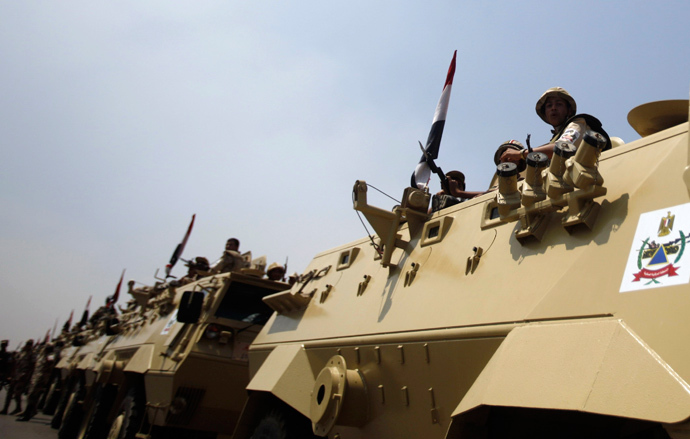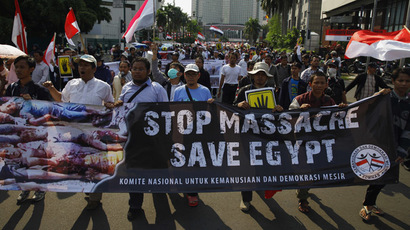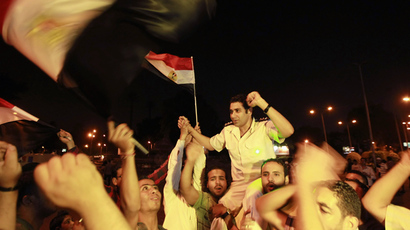Muslim Brotherhood leaders arrested as army launches hunt
A Mubarak-era judge has been sworn in as Egypt’s interim President, saying he welcomes help from the Muslim Brotherhood to “build the nation”. 300 members of the movement are already behind bars and new warrants are being issued.
Follow RT's LATEST
UPDATES on Egypt protests
Adli Mansour, 67, was one of those who drafted the election law which regulated the 2012 campaign, bringing the now ousted Morsi to power. At the same time, the judiciary he was part of, was one of Morsi’s main opponents, trying not to let the ousted leader push through constitution change.

The interim Egyptian leader has been out of the spotlight
throughout much of his long career in the judiciary. Mansour
became Deputy Justice at the Supreme Constitutional Court in
1992, under Mubarak. In May he was appointed by Morsi as
Chief Justice, but did not take office until July 1, when his
predecessor retired. He was sworn in as head of the
Constitutional Court on Thursday minutes before the procedure
which made him interim President.
At the Thursday swearing-in ceremony, he hailed the protesters
and the armed forces and also addressed the Muslim Brotherhood.
"The Muslim Brotherhood group is part of this people and are invited to participate in building the nation as nobody will be excluded, and if they respond to the invitation, they will be welcomed," Adli Mansour said, as cited by Reuters.

Despite Mansour’s benevolent comments concerning the Muslim
Brotherhood, the military, who ousted Morsi, appear to be not as
tolerant. They have presumably put the ex-president and his aides
in the same prison with Mubarak, according to local media. Arrest
warrants have also been issued for 300 members of the Muslim
Brotherhood.
Names of some top officials are on the list, including the Muslim Brotherhood leader, Mohamed Badie, his deputy, Khairat el-Shater, together with the head of the Muslim Brotherhood’s Freedom and Justice Party, Saad El-Katatni.
Mohammed Badie was arrested on Wednesday night in a resort village in Marsa Matrouh, a Mediterranean coastal city north west of Cairo, reported AP citing Egyptian officials. He had been staying in a villa owned by a businessman with links to the group.

Though the Tahrir crowd erupted into jubilant cheers following
the news of Morsi’s ousting, the country remains deeply
divided between Morsi’s opponents and supporters, with at least
11 people killed and over 500 injured in clashes, following the
military’s announcement.
Egyptian President Mohamed Morsi was ousted by the military late
on Wednesday, with security forces forbidding him from leaving
the country, arresting a number of top Muslim Brotherhood
officials, and blacking out broadcasts from a number of media
outlets. Four days of multi-million strong anti-government
protests preceded the events.
Morsi condemned the actions of the armed forces, describing them as a coup and urging Egyptians not to accept it.
Most of the Arab Gulf nations embraced Morsi’s removal. As for response from the West, it’s more cautious, with world leaders urging the Egyptian military towards non-violence and a return to democracy.















